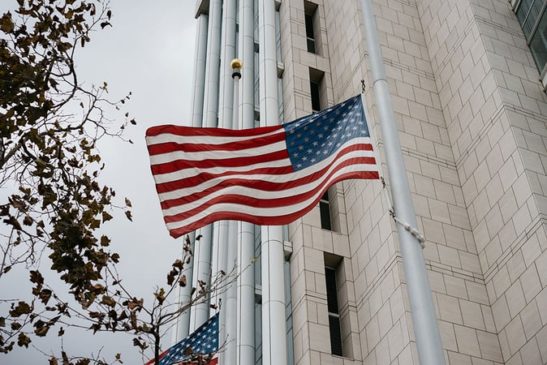The Bureau of Economic Analysis reported that GDP increased at a 4.9% annualized rate in Q3, slightly below the previously reported 5.2% pace.
The latest report from the United States Labor Department reveals a marginal increase in weekly jobless claims, with the number rising by 2,000 to 205,000 for the week ending December 16. While this uptick might raise eyebrows, it is important to note that the overall trend remains at historically low levels, indicative of a labor market that has defied expectations amid challenging economic conditions.
The US Economic Ecosystem
The four-week average, a more stable measure, actually decreased by 1,500 to 212,000, offering a broader perspective that smoothens out the usual week-to-week fluctuations. This comes as the United States Federal Reserve continues its strategy of raising interest rates to counter inflationary pressures that emerged from a robust economic rebound following the COVID-19 recession of 2020.
Notably, the job claims data coincides with the survey period for the nonfarm payrolls segment of December’s employment report, showing a slight increase between the November and December survey periods. The US economy added 199,000 jobs in November, slightly below the monthly average of 240,000 over the past year but still above the 150,000 positions created in October.
With more than 1.87 million Americans collecting jobless benefits as of the week ending December 9, the overall picture remains stable, indicating that the labor market has not experienced severe disruptions.
The Federal Reserve’s efforts to curb inflation seem to be bearing fruit, with consumer prices up 3.1% from a year earlier, down from the peak of 9.1% in June 2022. The Central Bank’s decision to keep rates unchanged at its recent meetings, coupled with the projection of three rate cuts in the coming year, suggests a cautious optimism for a managed economic slowdown without slipping into a recession.
Economists, initially wary of a potential recession when interest rates began to rise, now observe a phenomenon termed a “soft landing.” The combination of a decelerating inflation rate and a low unemployment rate has fostered hopes that the Federal Reserve is successfully navigating a path of stabilizing the economy without triggering a downturn.
Rubeela Farooqi, Chief US Economist at High Frequency Economics, notes:
“The data continue to signal that layoffs remain low. However, demand for workers appears to be easing; job growth remains robust but has moderated.”
GDP Growth and Outlook
The Bureau of Economic Analysis reported that Gross Domestic Product (GDP) increased at a 4.9% annualized rate in Q3, slightly below the previously reported 5.2% pace. While this indicates a robust pace of expansion, economists are observing a potential deceleration in momentum in the final months of the year.
Despite expectations of a wider trade deficit and a slower pace of inventory building, growth estimates for the fourth quarter range from 1.1% to 2.7%, reinforcing the notion that the US economy is positioned to avoid a recession. As a consensus, the majority of analysts believe 2024 will be a more economically viable year for the nation.



